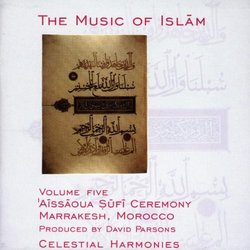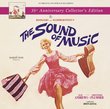Album DescriptionTen years in the making, The Music of Islam series recorded in Egypt, Morocco, Tunisia, Turkey, Yemen, Pakistan, Indonesia, Iran and Qatar represents the most comprehensive sound documentation available to Westerners today, of a world religion dating back to 1/622. Although governed by strict rules for fourteen centuries, contact with other cultures has radically affected Islamic music throughout history. As the world enters the XV/21st century the timing of this collection serves an even larger purpose, documenting the traditions that have survived and will continue to survive for centuries to come. Today, one fifth of the world's population, one billion people, are Muslims, occupying a large territory stretching from the Atlantic shore of north and west Africa, through west, central, and south Asia to island southeast Asia, and attracting an increasing following in India, western Europe, north America, east Asia, and southern Africa. This is a global presence which cannot be ignored.'Aissaoua Sufi Ceremony, the first of three volumes in this series recorded in Morocco, captures the public performance of 'Aissaoua rituals, called hadra. 'Aissaoua is the brotherhood comprised of followers of one of Morocco's most well-known and highly regarded spiritual leaders, Shaykh 'Abd Allah Sidi Muhammad Ben 'Aisa as-Sufiani al-Mukhtari (870/1465-933/1526). 'Aissaoua performances work on several levels: for members of the brotherhood, they form part of their spiritual training; for ceremony sponsors they serve to bless the event; and for the individual pilgrim or participant, the ritual provides access to the tangible baraka (blessing) of the Shaykh (Arabic Sheikh), which can be activated for purposes of healing and guidance. The trance possession which occurs during the hadra is the most dramatic manifestation of this therapeutic function of the performance. The baraka which effects these transformations is activated and brought into the hadra by means of recitations, singing and music, all of which is traditionally featured on this double length recording. Perhaps Parsons has captured even more than the Islamic music represented here, like, the transcendence of baraka from Shaykh ben 'Aisa for all who listen.


 Track Listings (7) - Disc #1
Track Listings (7) - Disc #1